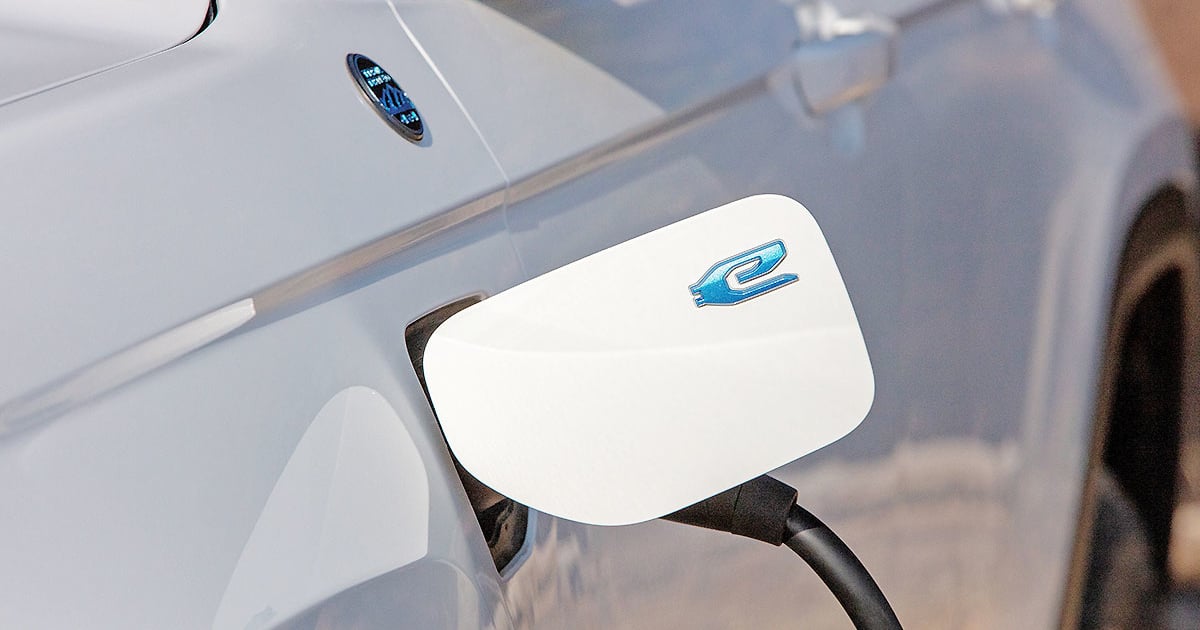
As Stellantis prepares to unleash a flood of battery-electric vehicles that will redefine its portfolio, its dealers are getting crash courses on fast-charging stations and the electrical infrastructure they’ll need to sell those EVs.
Instead of talking about moving metal, stores are dipping into a new world involving power companies and energy sourcing, said Randy Dye, chairman of the Stellantis National Dealer Council. These are different topics than Dye is used to, he said, but he is learning on the fly.
Dye said he’s installing three fast chargers at his stores — two at Daytona Dodge-Chrysler-Jeep-Ram and another at Maserati-Alfa Romeo of Daytona.
“One of the most important pieces of this is the power company that you’re using has to have the right amount of power, the right transformer for you to tie into,” Dye said. “The problem with that is that’s something the dealer has zero control over. If you have it, great. If you don’t, you’ve got to get busy. It’s not easy.”
Stellantis has partnered with a company called Future Energy to prepare dealers for this transition. Future Energy advises dealerships on how to set up charging infrastructure and can train employees on operational changes related to EVs and sales strategies.
“Never has there been a time where the automotive, utility, energy and other technology industries needed to align to be successful in this emerging market,” Future Energy CEO Sam DiNello said in a statement.
Stellantis said “nearly 70 percent of dealers are in various phases of assessing their individual readiness” with Future Energy. The automaker is aiming for dealers to have their charging infrastructure installed by the first quarter of 2024, said Phil Langley, its head of network development for North America.
The evaluations are occurring ahead of Stellantis’ planned launch of more than 25 EVs in the U.S. by 2030. An electric Ram ProMaster van is slated for a 2023 arrival, and more debuts are scheduled for 2024, including the Ram 1500, the Wrangler-inspired Jeep Recon and the midsize Jeep Wagoneer S.
Dye views the EV push as another example of the dexterity needed to survive in auto retailing.
He compared it to the process of figuring out the Internet when consumers started using it to research vehicles and pricing.
“That’s what our business is,” Dye said. “It’s a very dynamic business and it changes. You have to be able to appreciate that. Otherwise, it’ll drive you crazy.”
Steven Wolf, a Stellantis dealer in Texas, said his two stores are being evaluated. He said he’s looking at a price tag of just under $1 million for upgrades needed at Helfman Dodge-Chrysler-Jeep-Ram-Fiat and Helfman Maserati of Houston.
Stellantis does not plan to publicize specific dollar amounts that dealers will need to invest, as General Motors and Ford Motor Co. have done. Costs will vary by store.
Ford is requiring dealers to spend as much as $1.2 million and adhere to a new set of standards in exchange for the ability to sell unlimited EVs after next year, prompting some dealers and state associations to push back.
Langley said it isn’t mandatory that stores work with Future Energy, but they will need to have the necessary infrastructure in place to sell EVs. Langley said the automaker wants all dealers to sell EVs. Stellantis has not said whether it would offer buyouts to those who don’t want to make the investment, as GM has done with Buick and Cadillac.
Future Energy will identify energy requirements, electrical infrastructure changes and needed utility service upgrades at dealerships. Stellantis said Future Energy will “locate ideal installation areas for EV charging stations inside and outside of dealerships to address business flow challenges” and help dealerships find financial incentive programs to assist with EV investments.
Langley said Stellantis wants its dealers to have Level 3 fast-charging capabilities to support its EV lineup.
“In the end, we’re looking for a dealer to have the charging capabilities they need to service and sell our EV products,” Langley told Automotive News.
“They could do that independently, but we wanted to make sure that the dealers had that one-stop shopping, if you will, that had some expertise behind it, rather than just going out [and] individually purchasing a charger and then figuring out where to install it and how to install it.”
Future Energy offers various services to dealers, including “guidance through the financial assistance application process to obtain project funding support to offset EV integration costs,” Stellantis said.
Future Energy also can coordinate all construction, logistics, networking and commissioning to install and activate EV charging stations at stores.